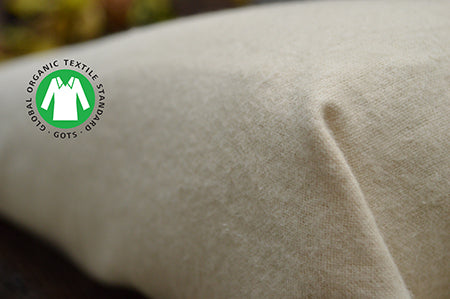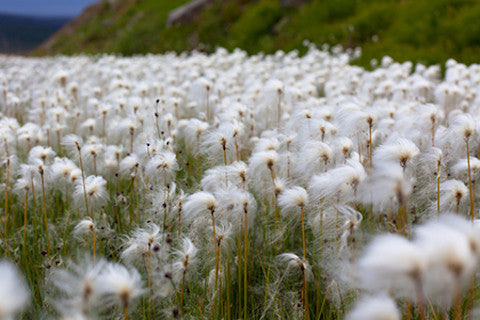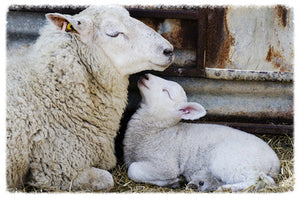Organic Cotton
At Resthouse Sleep Solutions we made a decision from the very start to source and sell only organic cotton products. We understood it was important to our clients, ourselves and to the environment. To go one step further, we sought out manufacturers that utilized the Global Organic Textile Standard (GOTS) certification (http://www.global-standard.org), which represents the most rigorous organic standards worldwide.

Cotton, when organically produced is a natural, renewable and biodegradable fibre where the certification standards benefit cotton producers and farms in developing countries by eliminating the use of harmful toxic pesticides and insecticides. It also reduces the cost of production, which in turn improves social conditions for those farmers producing the crop.
A Healthy Bedroom….
When we think about organic products, it is no longer just about the food we consume. This consideration also includes the clothes we wear, the sheets and pillowcases on our beds, and the mattresses on which we sleep. Every fabric that we sell at Resthouse is made with 100% organic GOTS certified cotton, including mattresses, pillows and bedding. Soft, luxurious and made ethically and organically.
Non-Organic Conventional Cotton Facts: Did you know…
According to the Organic Trade Association, conventionally grown cotton is the fourth most heavily sprayed crop in the world.
Chemicals
Agriculture is the largest source of pollution in most countries. 2.4% of the world’s crop land is planted with cotton and yet it accounts for 24% and 11% of the global sales of insecticide and pesticides respectively. Unsafe use of agricultural chemicals has severe health impacts on workers in the fields and on ecosystems that receive the run-off from cotton farms.
Genetic Engineering
The use of genetically-modified (GM) cotton varieties has increased considerably in recent years, reaching 20% (67.7 million ha) of the global crop area in 2002. Several of the major cotton-producing countries cultivate a significant percentage of their cotton fields with GM varieties that are resistant to some insects, pests and are tolerant of certain herbicides.
The Impact on Water
It can take more than 20,000 litres of water to produce 1kg of cotton; equivalent to a single T-shirt or a pair of jeans. 73% of global cotton harvest comes from irrigated land (as documented in the WWF report The Impact of Cotton on Freshwater Resources and Ecosystems) depleting valuable water sources in regions where water is scarce.
River Basin Impacts
Unsustainable cotton farming, with massive outputs of water and pesticides, have already been responsible for the destruction of large-scale ecosystems such as the Aral Sea in Central Asia, and the deteriorating health and livelihoods of people living there.
It seems clear that the alternative to conventional cotton production needs to be supported and sounded out. We at Resthouse are proud to be a part of a growing movement making organic options available.
Why organic cotton is a better choice:
- No chemical pesticides or fertilizers
- No genetically-modified crops
- Reduced environmental impact
- Better health for the cotton farmers and consumer





















